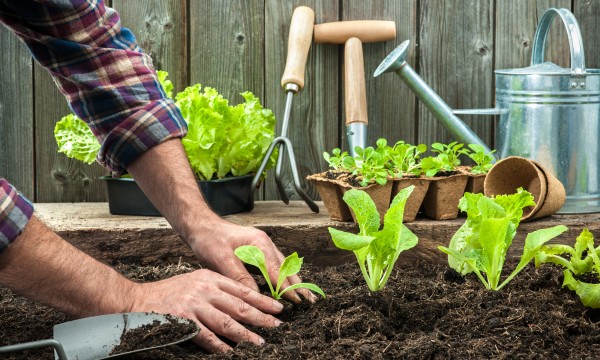If you are new to gardening, you may be curious about the concept of compost and how to use it to help your garden thrive. Check out this overview for a rundown of the basics and how to get started with using compost.
- Browse Categories
- All Tips
-
Home & Garden
- All
- Appliances
- Bathroom
- Cleaning
- Crafts
- Decorating
- Electrical
- Flooring
- Furniture
- Garage Door
- Gardening
- Green Living
- Heating
- Home Alarm Systems
- Home Maintenance
- Home Remedies
- Home Security
- Home Staging
- House Sitting
- Junk Removal
- Kitchen
- Lawn Care
- Lock Systems
- Moving
- Outdoor Living
- Pest Control
- Plumbing
- Renovation
- Roofing
- Snow Removal
- Storage
- Tools
- Tree Service
- Health
- Family
- Travel
- Auto
- More Tips
Your account is now active!

Gardening 101: using compost in your garden
October 13, 2015

What is compost?
Compost is rotten organic matter. While it looks and smells like soil, it is not, although soil may be added to homemade compost to help it decompose. Compost is made by combining green nitrogen-based materials with brown carbon-based products.
- Green materials include garden waste from healthy plants, kitchen scraps and grass clippings.
- Brown materials for the compost bin include leaves, newspaper and dry straw.
- Over time, all these products break down to make what we know as compost – a loose, nutrient-rich substance that helps to aerate soil and feed beneficial fungi and bacteria.
Adding compost
Compost can be added to the soil at the end of the garden season before the ground freezes or at the start of spring, after the soil has thawed.
- Simply add a 1/4 to 1/2 inch layer of compost on the surface of your entire garden. You can also use this same process for container gardens.
- Adding compost to the garden is not an exact science, so don't worry about measuring or trying to add an exact amount. If you don't add enough or add a little too much, it will not hurt anything.
Working compost into soil
After a layer of compost has been added to the surface of your garden, it needs to be worked into the soil so that the nutrients contained in the compost will be available for new plants or seedlings.
- Use a spade or a garden fork to turn the compost into the soil, working it into at least the top 6 inches of soil.
- For containers, use your hands or a small trowel to work compost into the top few inches of soil. For containers larger than 18 inches deep, try to work the compost into at least the top 6 inches of soil for the best results.
- Ensuring that the compost is well mixed into the soil helps to prevent tender plants from being burned by fresh compost. This isn't a common problem, but it can happen.
- Once the compost has been well integrated into the soil, your garden is ready to plant.
Using compost in your garden once or twice a year will enable you to create a healthy, productive, low-maintenance garden.
National advertising powered by Mediative.com. Yellow PagesTM, Walking Fingers & DesignTM, YP.caTM, Find. & DesignTM, YellowPages.caTM, Canada411TM and YP ShopwiseTM are trademarks of Yellow Pages Digital & Media Solutions Limited in Canada. All other trademarks are the property of their respective owners. Copyright © 2018 Yellow Pages Digital & Media Solutions Limited. All Rights Reserved.
More Tips
The material on this website is provided for entertainment, informational and educational purposes only and should never act as a substitute to the advice of an applicable professional. Use of this website is subject to our terms of use and privacy policy.







